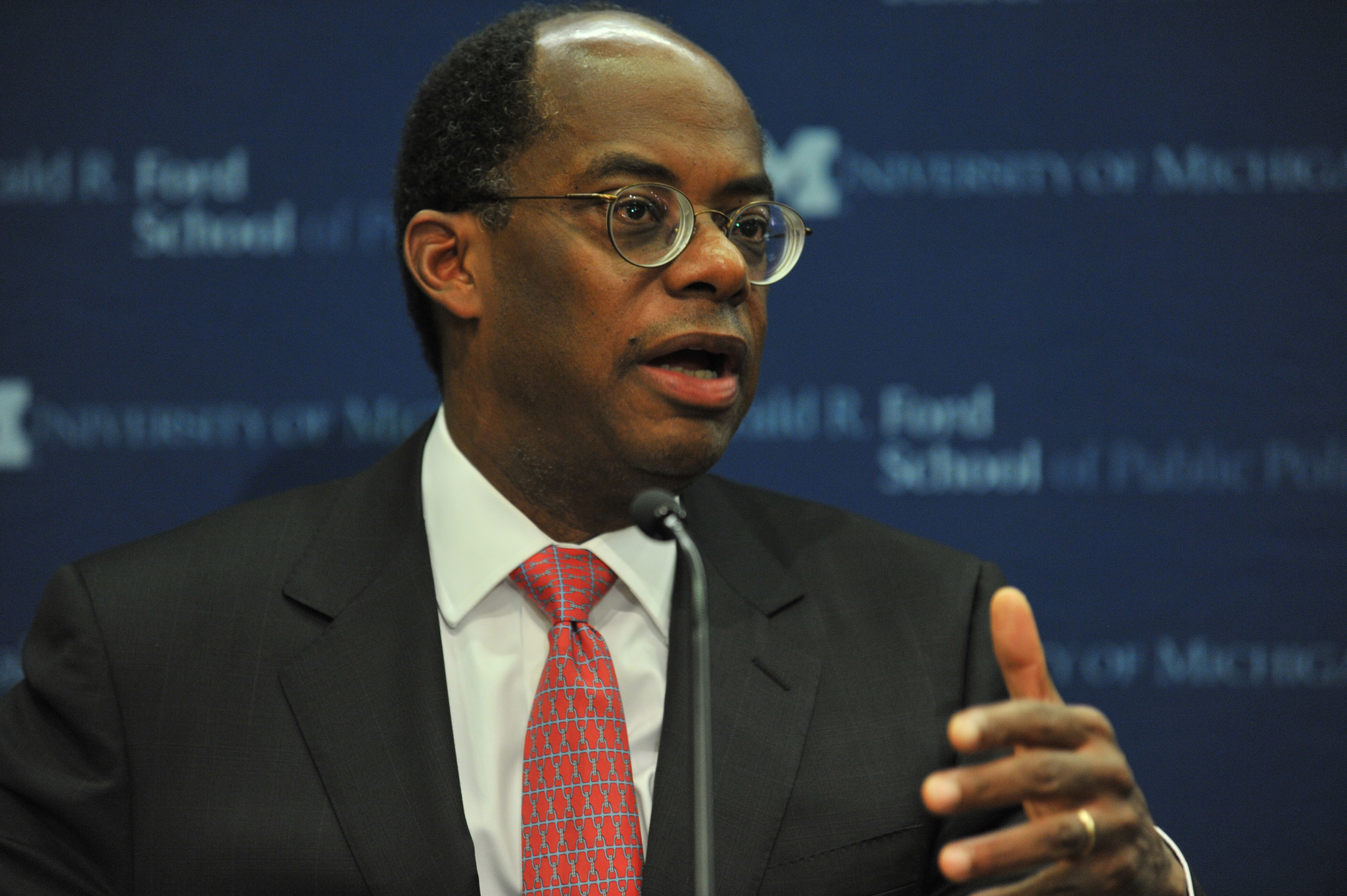Roger W. Ferguson Jr., CEO of the Teachers Insurance and Annuity Association of America (TIAA), has been selected to deliver the commencement address at Stevens Institute of Technology’s 146th Commencement Ceremony. While the connection to TIAA may seem obscure, Stevens was one of the first clients of TIAA since its founding as a financial services company, providing retirement services to those in various disciplines including academia, medicine, and research.
One hundred years later, the institutional connection between Stevens and TIAA remains, now accentuated by the presence of Ferguson at this year’s commencement exercises.
Ferguson began his role at TIAA in 2008, but this was not always his career aspiration. Ferguson attended Harvard University, receiving a B.A. and Ph.D. in Economics, as well as a J.D. from Harvard Law School. While many discouraged Ferguson from pursuing advanced degrees in economics and law, Ferguson was passionate about both fields. As his own commencement neared, Ferguson remained unsure of his immediate future and decided that continuing his education was an appealing path.
Education was central in Ferguson’s upbringing, as his mother was a public school teacher and taught him to view education as a gift that contributes to one’s entire life journey. Striving towards both a J.D. and a Ph.D. did not come easily, but with passion and the support of an assistant professor at Harvard who served as his mentor, Ferguson was able to accomplish his goal. His experiences and success only substantiate his emphasis on the value of being a lifelong learner, forging one’s individual way, and finding an inspirational mentor.
Following his college years, Ferguson’s career shifted many times over. He worked as a lawyer in New York City for three years, then took to consulting work for 13 years. Ferguson then became a member of the Board of Governors of the U.S. Federal Reserve System, for which he was elected chairman in 1999. He also served as both the chairman of the Joint Y2K Council from 1998 to 2000 and the chairman of the Federal Reserve Board’s Committee on the Global Financial System (CGFS) from 2003 to 2006. After resigning from the CGFS in 2006, Ferguson was appointed as chairman of Swiss Reinsurance America Holding Corporation.
This long winding path ultimately led Ferguson to TIAA, where he became president and CEO, positions which he continues to hold. Ferguson describes his career path as “a rock climbing wall with many horizontals and verticals,” as he never expected to end up in his current occupation.
Based upon his experience, a piece of advice that Ferguson wishes he would have received as a college student is that “culture, style, fit, and the other things that we describe as ‘soft’ are very important, as ‘soft’ things are the hardest.” Ferguson characterizes “hard” skills to be technical abilities developed in the classroom and “soft” skills to include empathy, fit, communication, and personality. He finds that these soft skills are not taught in a classroom but are fundamental to finding career success and being able to work at a place where one can feel comfortable. Furthermore, Ferguson also offers advice to students about how to deal with setbacks, quoting Winston Churchill in saying that “Success is never final, and failure is never fatal.” Ferguson emphasizes the importance of learning from failure and being able to bounce back and persevere despite any obstacles. Ferguson followed this advice when interviewing for McKinsey & Company, a management consulting firm. He had 13 interviews, not all of which were successful, but after the unsuccessful ones, Ferguson was able to learn from his mistakes and apply those lessons to better his skills. Impressed by Ferguson’s perseverance, McKinsey ended up hiring him, despite never previously hiring someone with a business school degree. Ferguson believes that failure can be used as a way to learn, conduct self-reflection and analysis, and improve, as fortitude is a quality of a great leader.
Ferguson’s commencement address is inspired by his personal life experiences and the message to students to be “difference makers” in the world. Ferguson hopes that his address makes students feel proud of their achievements and inspires them to use their success, continue learning, and mold the world into a better place.

Be First to Comment